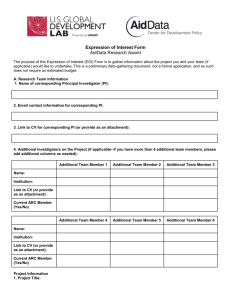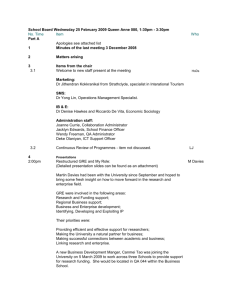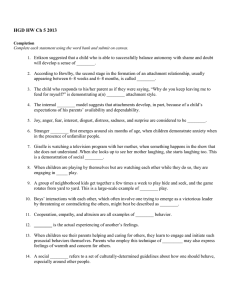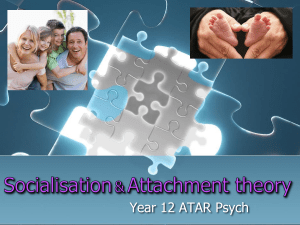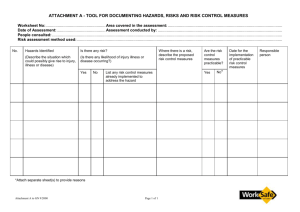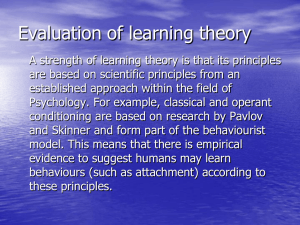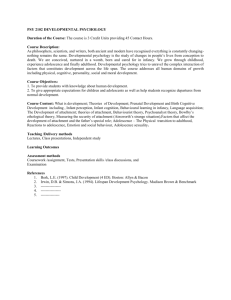Lifespan Development
advertisement
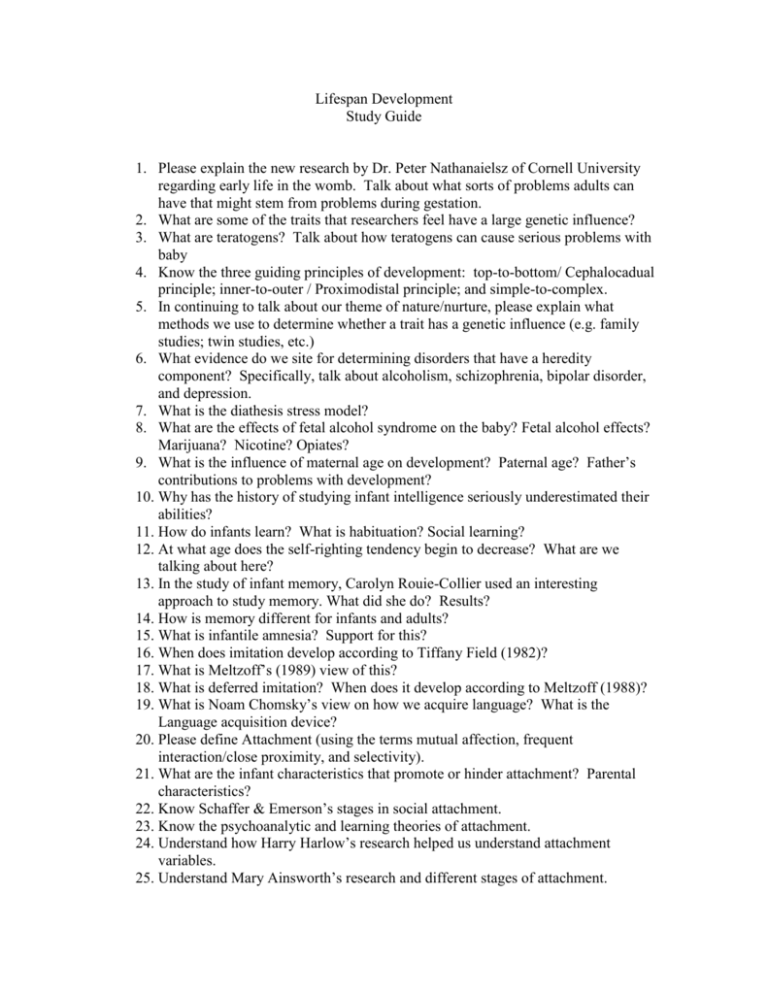
Lifespan Development Study Guide 1. Please explain the new research by Dr. Peter Nathanaielsz of Cornell University regarding early life in the womb. Talk about what sorts of problems adults can have that might stem from problems during gestation. 2. What are some of the traits that researchers feel have a large genetic influence? 3. What are teratogens? Talk about how teratogens can cause serious problems with baby 4. Know the three guiding principles of development: top-to-bottom/ Cephalocadual principle; inner-to-outer / Proximodistal principle; and simple-to-complex. 5. In continuing to talk about our theme of nature/nurture, please explain what methods we use to determine whether a trait has a genetic influence (e.g. family studies; twin studies, etc.) 6. What evidence do we site for determining disorders that have a heredity component? Specifically, talk about alcoholism, schizophrenia, bipolar disorder, and depression. 7. What is the diathesis stress model? 8. What are the effects of fetal alcohol syndrome on the baby? Fetal alcohol effects? Marijuana? Nicotine? Opiates? 9. What is the influence of maternal age on development? Paternal age? Father’s contributions to problems with development? 10. Why has the history of studying infant intelligence seriously underestimated their abilities? 11. How do infants learn? What is habituation? Social learning? 12. At what age does the self-righting tendency begin to decrease? What are we talking about here? 13. In the study of infant memory, Carolyn Rouie-Collier used an interesting approach to study memory. What did she do? Results? 14. How is memory different for infants and adults? 15. What is infantile amnesia? Support for this? 16. When does imitation develop according to Tiffany Field (1982)? 17. What is Meltzoff’s (1989) view of this? 18. What is deferred imitation? When does it develop according to Meltzoff (1988)? 19. What is Noam Chomsky’s view on how we acquire language? What is the Language acquisition device? 20. Please define Attachment (using the terms mutual affection, frequent interaction/close proximity, and selectivity). 21. What are the infant characteristics that promote or hinder attachment? Parental characteristics? 22. Know Schaffer & Emerson’s stages in social attachment. 23. Know the psychoanalytic and learning theories of attachment. 24. Understand how Harry Harlow’s research helped us understand attachment variables. 25. Understand Mary Ainsworth’s research and different stages of attachment. 26. What is Ainsworth’s Caregiving hypothesis? 27. What is Kagan’s Temperament Hypothesis? 28. What should adults do if a child has a history of abuse or neglect? 29. What are the long-term correlates of attachment quality? 30. What are the effects of early social deprivation? 31. How can we aid in recovery from early social deprivation? 32. What are the characteristics of a high quality day care? 33. Talk about the results of Anderson’s (1992) Swedish Day care study. 34. 35.
